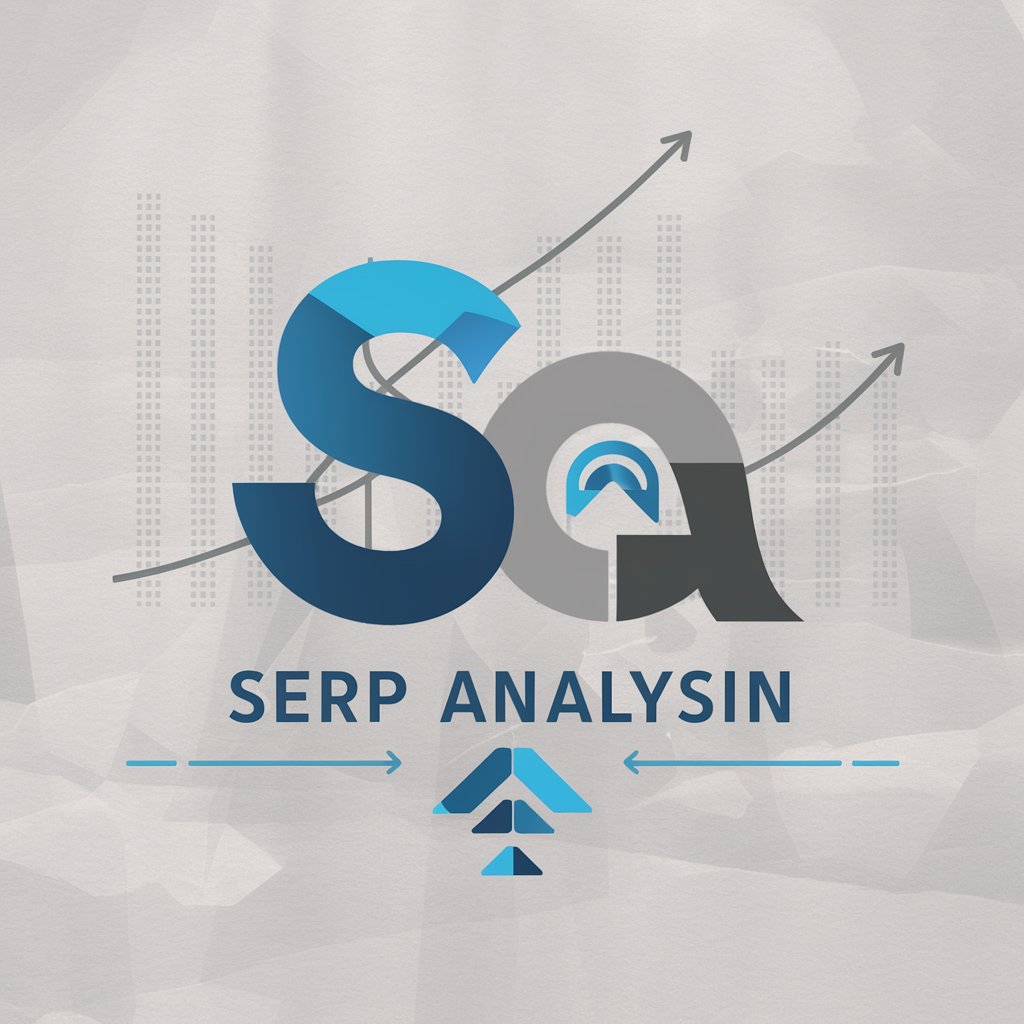
SERP Analyst - SERP analysis tool for insights.

Hello! Ready to explore and organize search data?
Unlock insights with AI-powered SERP analysis.
Analyze the top 10 search results for the keyword 'digital marketing trends 2024'.
Provide a detailed SERP analysis for 'best productivity apps 2024'.
Gather SERP data on 'latest AI advancements' and summarize the key points.
List and describe the top search results for 'beginner's guide to SEO'.
Get Embed Code
Introduction to SERP Analyst
SERP Analyst is a specialized tool designed to process and organize search engine results page (SERP) data. It offers structured information including links, titles, descriptions, and other relevant details extracted from search engine results. The primary purpose of SERP Analyst is to provide users with comprehensive insights into search engine rankings, competitor analysis, market trends, and keyword performance. By aggregating and presenting SERP data in a coherent format, SERP Analyst facilitates tasks such as market research, SEO analysis, content optimization, and general information gathering. Its design is focused on accuracy, relevance, and usability, aiming to streamline the process of accessing and interpreting SERP data for users. Powered by ChatGPT-4o。

Main Functions of SERP Analyst
SERP Data Extraction
Example
Extracting links, titles, descriptions, featured snippets, and other elements from search engine results pages.
Scenario
A marketing analyst uses SERP Analyst to gather data on competitor rankings, identify trending topics, and analyze search engine performance for targeted keywords.
Competitor Analysis
Example
Comparing search engine rankings, keyword performance, and content strategies of competitors.
Scenario
An SEO specialist uses SERP Analyst to analyze competitor backlink profiles, identify top-performing keywords, and benchmark against industry competitors.
Keyword Research
Example
Identifying relevant keywords, assessing search volume, competition level, and trend analysis.
Scenario
A content strategist utilizes SERP Analyst to identify long-tail keywords, analyze search intent, and optimize content for improved organic search visibility.
Market Trends Analysis
Example
Tracking changes in search engine results, identifying emerging trends, and analyzing consumer behavior.
Scenario
A digital marketer monitors SERP trends using SERP Analyst to identify shifts in consumer preferences, adapt marketing strategies, and capitalize on emerging opportunities.
SEO Performance Monitoring
Example
Tracking website rankings, organic traffic, click-through rates, and other key SEO metrics.
Scenario
An online retailer uses SERP Analyst to monitor keyword rankings, analyze SERP features, and optimize website content for improved search visibility and organic traffic.
Ideal Users of SERP Analyst
Digital Marketers
Digital marketers leverage SERP Analyst to gain insights into search engine rankings, competitor performance, and market trends. By analyzing SERP data, they can refine their SEO strategies, identify content opportunities, and optimize online visibility to reach target audiences effectively.
SEO Specialists
SEO specialists rely on SERP Analyst for comprehensive SEO analysis, including keyword research, competitor benchmarking, and performance monitoring. By utilizing SERP data, they can identify optimization opportunities, track keyword rankings, and improve website visibility in search engine results.
Content Strategists
Content strategists utilize SERP Analyst to conduct in-depth keyword research, analyze search intent, and optimize content for improved search visibility. By understanding SERP features and user behavior, they can create targeted content that resonates with their audience and ranks higher in search engine results.
Market Researchers
Market researchers use SERP Analyst to track market trends, analyze consumer behavior, and identify emerging opportunities. By monitoring SERP data, they can stay informed about industry developments, assess competitor strategies, and adapt marketing tactics to meet evolving consumer needs.
Business Owners
Business owners benefit from SERP Analyst by gaining insights into their online visibility, competitor performance, and market trends. By analyzing SERP data, they can make informed decisions about their digital marketing strategies, optimize website content, and enhance their online presence to attract more customers.

How to Use SERP Analyst
Visit yeschat.ai for a free trial without login, also no need for ChatGPT Plus.
Simply go to yeschat.ai to access SERP Analyst without the need for a login or ChatGPT Plus subscription.
Enter your keyword or topic of interest.
Once on the SERP Analyst page, enter the keyword or topic you want to analyze in the search bar.
Review the structured SERP data.
SERP Analyst will display structured information including links, titles, descriptions, and other relevant details related to your keyword.
Analyze the results and extract insights.
Examine the presented data to gain insights into search engine results for your chosen keyword or topic. You can use this information for market research, SEO analysis, or general information gathering.
Refine your search or explore related topics.
Based on the initial results, you can refine your search query or explore related topics to delve deeper into specific areas of interest.
Try other advanced and practical GPTs
Hal 9000
Unlock Intelligent Assistance with AI-Powered Hal 9000.

Floor Plan Designer
Design your space with AI precision

단간론파 시뮬레이터
Shape the narrative. Challenge the hero.

Mandarin Maestro
Empowering Mandarin Mastery with AI

Mi Maestro (De enfermería) Favorito
Your AI-powered nursing mentor

Fairy Tale Maker
Crafting Magical Stories with AI

Expert Spring Security GPT
Empower your Spring Security journey with AI assistance.

Excello
Empowering Your Excel Skills with AI

WiseCoach
Empowering Your Business Decisions with AI

Rust Mentor
Empower your Rust coding with AI insights.

中医草药导师
Unlocking Traditional Chinese Medicine with AI

Make It Stick
Unlock Learning with AI-Powered Assistance

Q&A about SERP Analyst
What is SERP Analyst?
SERP Analyst is a tool designed to provide structured SERP information including links, titles, descriptions, and other relevant details related to a specific keyword or topic.
How does SERP Analyst work?
SERP Analyst retrieves search engine results for a given keyword or topic and organizes them into a structured format, making it easier for users to analyze and extract insights.
What are some common use cases for SERP Analyst?
Common use cases for SERP Analyst include market research, SEO analysis, content optimization, competitor analysis, and trend identification.
Can SERP Analyst be used for academic purposes?
Yes, SERP Analyst can be utilized for academic research, helping scholars and students gather information and analyze trends in specific fields of study.
Is SERP Analyst suitable for digital marketing?
Absolutely, SERP Analyst is a valuable tool for digital marketers, offering insights into search engine rankings, competitor strategies, and keyword performance.





